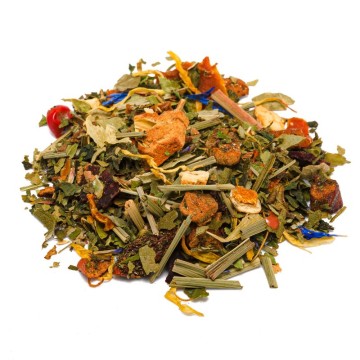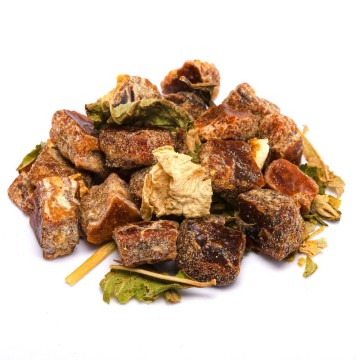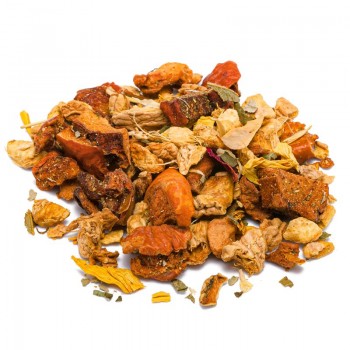The infusion is an excellent drink for our body, for its benefits.
The combination of various ingredients, which stimulates the gastric juices, gives it properties of remarkable well-being for proper digestion and against constipation. The effects will be useful not only for a laxative and diuretic effect but also as a detox food, for a purification of the intestine and the body.
Rhubarb tea: properties and benefits
The beneficial characteristics of this infusion are various, from anti-constipation to purification. The rhubarb infusion mixture is designed, in particular, to regulate digestion and promote intestinal transit. By taking this infusion, the laxative properties of the components are exploited, as an effective remedy for constipation.
It contains nutrients and fibers that facilitate the digestive process and peristalsis, for a well-being of the digestive system. It reduces intestinal transit times and keeps the intestine clean, thanks to its purgative and diuretic properties. In fact, the infusion not only counteracts constipation but also favors the draining action on body fluids, for the benefit of the correct functionality of the urinary tract. As a diuretic and laxative, the infusion favors the expulsion of excess uric acid and digestive waste. It represents a natural diuretic and tonic remedy, with a remarkable detox effect on the body and blood.
From this point of view, the components of elderberry, dog rose and hibiscus are very useful. The infusion attenuates the inflammation of the intestinal mucous membranes with an emollient, purifying and antispasmodic action. Dog rose, for example, has the properties suitable for acting as an astringent to tone the tissues, to contrast irritation.
The rhubarb infusion also makes vitamins and mineral salts available which are useful for well-being (group B and vitamin C ).
Plants, flowers and fruits
The herbal tea blend has various natural elements that help the well-being of the urinary and digestive systems. To create this infusion, several components were used; the mix contains ingredients from different sources: apple, hibiscus, elderberries, rose hips, natural rhubarb flavourings.
Rose is a perennial plant of the Rosaceae family, which boasts hundreds of species and thousands of cultivars of this plant. Famous for its flowers and their perfume, the rose can appear in the form of erect, climbing shrubs, with or without thorns. The flowers change in shape, size and color from white to yellow and red. Most of the species are native to Asia.
Apples are the fruit of the Malus domestica plant of the Rosaceae family. It is a tree native to Asia, now spread all over the planet – apples have been included in human nutrition for millennia. The fruits differ in colors and in many varieties, with slightly different textures and flavors.
The Hibiscus plant has numerous species of herbs, shrubs and trees, all belonging to the Malvaceae family. These plants are native to warm temperate and tropical regions. Hibiscus flowers, used for herbal tea or to create dried hibiscus, are found in many species - they only last for one day. The European Sambucus nigra plant belongs to the Adoxaceae family. It is a shrub widespread in Europe and western Asia, which grows in humid and sunny places. The berry is small and purplish-black, used in infusions and for food.
The rhubarb plant is the rheum rhaponticum (or rheum rhabarbarum) and belongs to the Polygonaceae family. It forms a large tap root, from which the secondary apparatus on which the buds emerge starts. The ribs are eaten, while the root is used for the production of liqueurs and bitters, as well as in herbal medicine. The plant is found wild throughout Europe and Asia.
Nutritional values of rhubarb tea
The most important main active ingredients are antioxidants, in the species of flavonoid compounds, such as anthocyanins. Furthermore, from a nutritional point of view, the infusion contains vitamins A, C, group B and minerals such as iron and potassium.
How to use the ingredients in the infusion The infusion is obtained by placing in a cup (250 ml ), about 3-5 grams mixed with water at 100 °C. Leave to infuse for 10 to 12 minutes, before drinking the purifying infusion. Add honey or sugar, if desired.
Rhubarb tea: side effects and contraindications
Even if the rhubarb infusion apporta of the benefits it is necessary not to exceed the doses, nor for too long periods. Exaggerated intake of the infusion can cause diarrhoea, headache, abdominal pain and drop in blood pressure. For those suffering from diverticula or intestinal obstruction, it is advisable to consult a doctor. It is contraindicated for pregnant or lactating women.


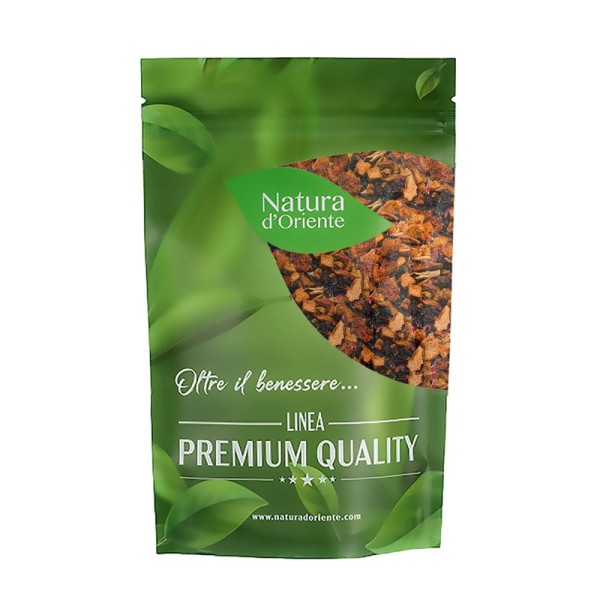








 No reward points for this product.
No reward points for this product.
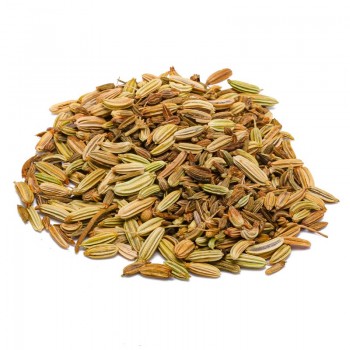
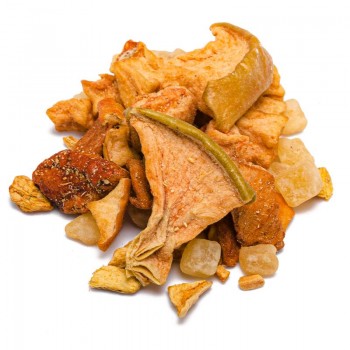
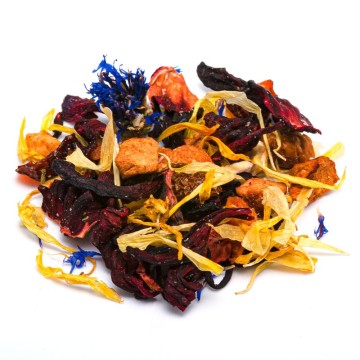
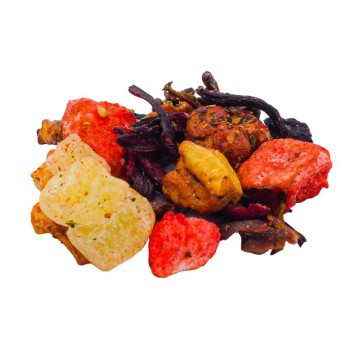
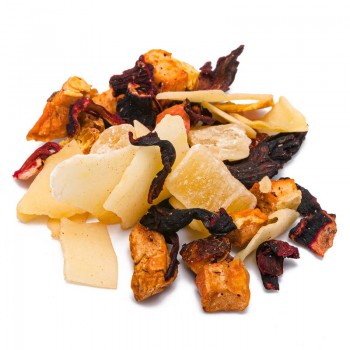
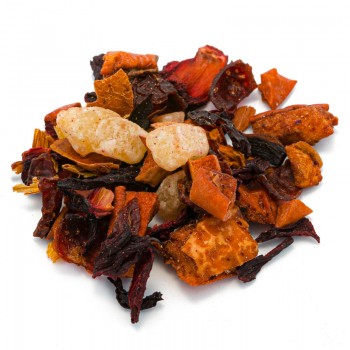
![infuso pesca e vaniglia [Natura d'Oriente]](https://www.naturadoriente.com/3538-home_default/infused-peach-vanilla.jpg)
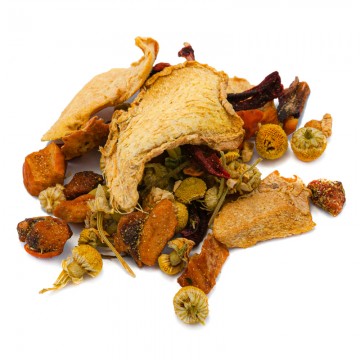
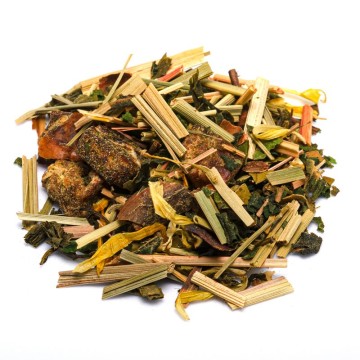
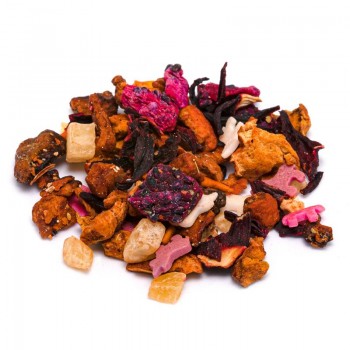
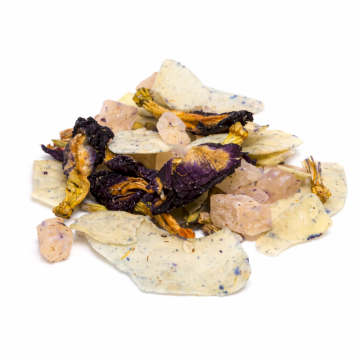
![infuso lime mirtilli rossi [Natura d'Oriente]](https://www.naturadoriente.com/3551-home_default/lime-infused-cranberries.jpg)
